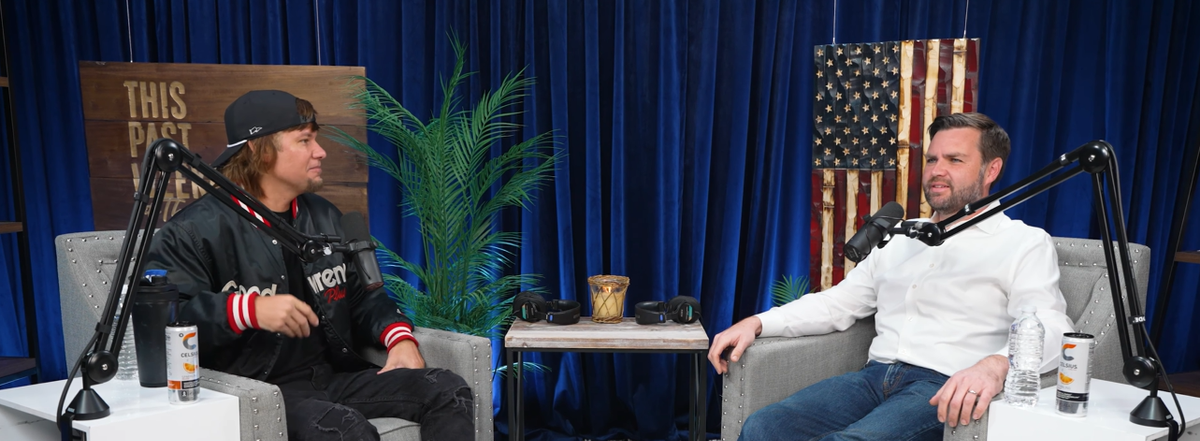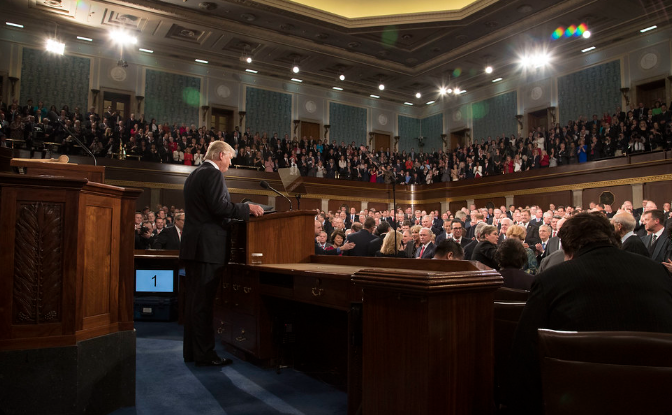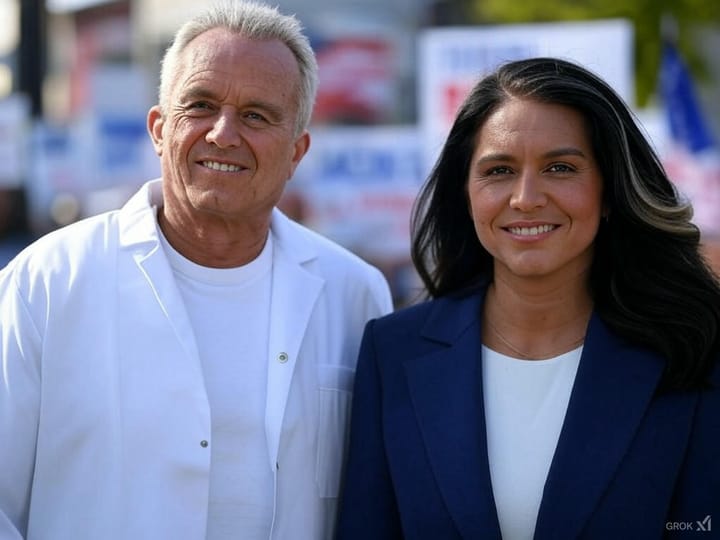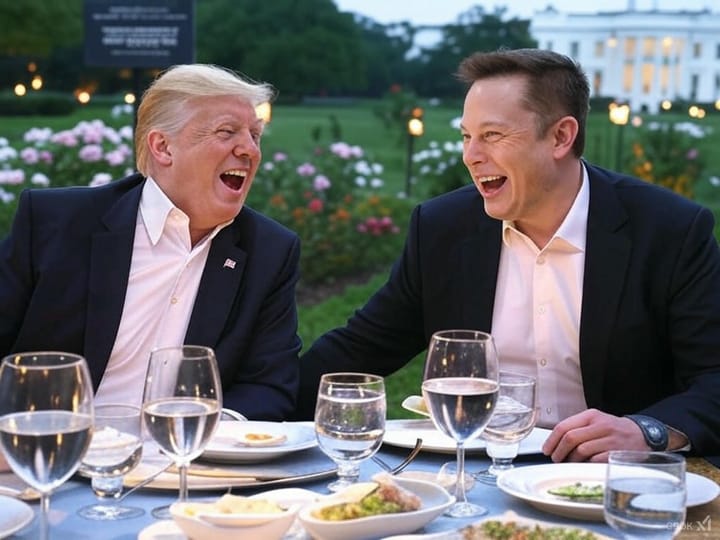A Candid Conversation on Addiction, Family, and the Healthcare Crisis: JD Vance and Theo Von Get Real
JD Vance and Theo Von dive deep into addiction, family struggles, and the opioid crisis, blending humor with hard truths in a powerful podcast episode.

In a recent episode of Theo Von's podcast, JD Vance engaged in an unexpectedly profound and moving dialogue with Theo. Their conversation spanned topics such as addiction, family struggles, the opioid crisis, and the inadequacies of the healthcare system, providing raw insights into some of America’s most pressing challenges—all while maintaining Theo's characteristic humor and candidness.
Addiction, Recovery, and Family
JD Vance candidly discussed his family's struggles with addiction, particularly focusing on his mother’s battle with substance abuse. He shared the emotional journey from fearing for her well-being to witnessing her transformation—a second chance that allowed her to become a devoted grandmother. JD described seeing his mother play with his children as a “gift”—a redemptive moment he had not expected to experience. Theo responded with his trademark blend of wit and empathy, reflecting on how recovery and redemption can make life's hardships worthwhile.
Theo also opened up about his own struggle with perfectionism—how, for much of his life, he felt that being perfect was the only way to be seen and accepted. JD, in turn, emphasized the significance of balance, learning to accept imperfection, and practicing gratitude. He spoke about how gratitude has reshaped his worldview, helping him stay grounded, particularly in his role as a parent. This segment of their discussion offered a deeply relatable reminder that the path to self-acceptance often begins with relinquishing unattainable ideals. It also highlighted how both men, in different ways, have faced the pressures of trying to live up to unrealistic expectations, ultimately finding solace in accepting themselves as they are.
The Opioid Crisis: Accountability and the Sacklers
The conversation then shifted to one of America’s most devastating public health crises—the opioid epidemic. JD was forthright in his criticism of Purdue Pharma and the Sackler family, characterizing their actions as “legalized drug dealing on an industrial scale.” He argued that there should have been criminal investigations into the Sacklers for the countless lives lost and the profound societal harm caused by OxyContin. Theo added his perspective, comparing Purdue’s deceptive marketing to “pushing candy-coated pills,” highlighting how individuals were led to trust something inherently dangerous. Their shared outrage was palpable, reflecting the frustration many feel about the lack of accountability for those in positions of power.
JD elaborated on how this crisis had fundamentally altered his perspective on “big pharma” and the broader healthcare industry. He questioned why the government has not done more to prevent pharmaceutical companies from profiting off the suffering of ordinary people—a sentiment echoed by many who are disillusioned with corporate interests prioritizing profits over public health. JD’s critique extended to how the crisis has eroded public trust in medicine, shifting the perception of healthcare from being a system designed to help people to one driven by profit motives.
Theo and JD discussed how the opioid crisis has had far-reaching effects beyond individual addiction—breaking apart families, devastating communities, and leading to an increased sense of hopelessness in many parts of the country. JD emphasized that addressing these issues requires both systemic accountability and a cultural shift that values human lives over corporate profit margins. He also touched on the need for effective rehabilitation programs and stronger community support systems, which can help restore not only the lives of individuals but also the well-being of entire communities.
The Power of Gratitude
Despite the gravity of the discussion, JD and Theo found moments of levity, particularly when speaking about the power of gratitude. JD described how maintaining gratitude, even during difficult times, has helped him keep perspective. Whether it’s appreciating the small moments with his wife and children or being thankful for the growth his family has experienced, JD underscored that gratitude can be a powerful tool for overcoming personal struggles. Theo agreed, likening gratitude to an everyday form of spirituality—a means of finding meaning and peace amid chaos.
Their exchange on gratitude also provided a poignant contrast to the darker themes discussed earlier in the podcast. JD spoke of how practicing gratitude has helped him as a father, allowing him to stay patient and compassionate even when the stresses of life threaten to overwhelm. Theo chimed in with humorous anecdotes, acknowledging how easy it is to lose sight of gratitude in the face of minor daily frustrations. Yet, he emphasized that finding those small moments to be thankful for can make a significant difference in overall well-being. Together, they painted a picture of gratitude not as an abstract concept but as a practical, life-changing habit.
Healthcare Price Transparency: The Struggle for Fairness
The episode also scrutinized the American healthcare system, with JD passionately advocating for price transparency. He recounted a personal experience of receiving a $115,000 bill following the birth of his child due to an out-of-network doctor—an egregious example of how opaque pricing can harm families. Theo’s analogy about “buying a service without knowing the price until after” perfectly encapsulated the absurdity of the current healthcare landscape.
JD pointed out that Americans are paying significantly more for medications compared to residents of other developed nations, a fact that would likely incite widespread outrage if more people understood the scale of the disparity. He argued that the lack of transparency benefits insurance companies, pharmaceutical giants, and other powerful entities, while leaving everyday people to bear the financial burden. JD also emphasized that healthcare costs are a primary driver of financial instability for many American families, with medical debt being the leading cause of bankruptcy in the country. This lack of transparency is not just an economic issue but a moral one, as it prevents people from accessing the care they need without the fear of financial ruin.
Theo agreed, adding that the entire system feels rigged against ordinary people, who are often left with impossible choices when it comes to medical care. JD underscored the need for policymakers to take a stand against the powerful lobbies that work to keep prices hidden, reiterating that healthcare should be a basic human right, not a luxury accessible only to those who can afford it. The discussion left listeners with a sense of urgency—real change is needed to make healthcare accessible and fair for all.
Hope for the Future
Despite the weighty topics, the conversation ended on a hopeful note. JD expressed optimism about the potential for systemic change. He emphasized that his mission, alongside figures like Donald Trump and Robert F. Kennedy Jr., is to tackle these issues directly, without pandering to corporate interests or political gatekeepers. Unlike many political figures, JD and Trump are willing to participate in unedited long-form content such as podcasts, demonstrating an openness and willingness to engage directly with the public—something that Theo noted Kamala Harris would never do, as she would not entertain anything unscripted or unedited.
Theo, with his signature humor, kept the discussion grounded, returning to themes of family, gratitude, and the small moments that make life meaningful. JD highlighted the importance of remaining hopeful and committed to change, even when the odds seem insurmountable. He stressed that the first step toward progress is having honest conversations about the issues facing Americans today—something he believes is only possible when leaders are willing to be vulnerable and speak openly, as he and Theo had done.
This episode was more than just a podcast—it was a heartfelt dialogue about some of the biggest challenges facing America today. JD Vance and Theo Von managed to balance humor with honesty, showing that even in dark times, there is room for hope, laughter, and redemption. Their conversation served as a reminder that meaningful change starts with understanding, empathy, and the courage to speak the truth, no matter how uncomfortable it may be. By doing so, they provided listeners with not only a candid look at America's struggles but also a sense of hope that change, however difficult, is always within reach.





Comments ()